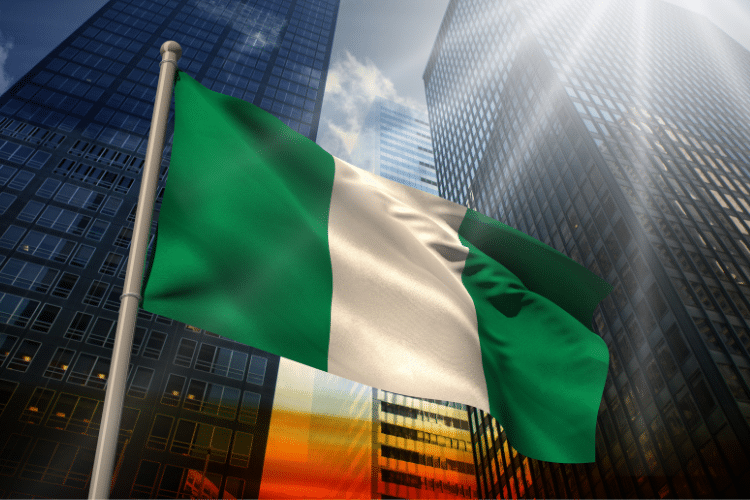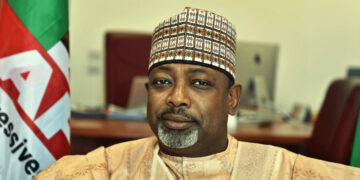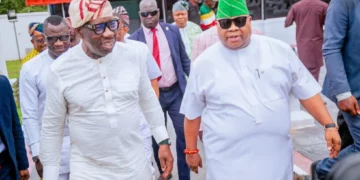Nigerian experts in International Affairs and Diplomacy have warned about the consequences of the continued failure of President Bola Tinubu to appoint substantive heads of Nigeria’s foreign missions such as ambassadors and high commissioners one year after they were recalled.
This development may have been compounded by the reported cases of the pathetic state of some Nigerian missions abroad, which are fast deteriorating because of poor funding and lack of care.
Tinubu had in April 2024, appointed 14 consuls-general of Chargés d’Affaires for 14 countries but failed to appoint functional ambassadors in foreign states, which appears to be curious.
“The president decides when he makes his appointments but the current delay in picking substantive envoys is certainly not a good sign for seriousness in Nigeria’s diplomacy.
“This state of uncertainty is disturbing as foreign interests who want to do business with Nigeria are reportedly finding it difficult to engage at the high level because of the absence of substantive heads,” a former diplomat said.
In an interview with LEADERSHIP Sunday on the implications of the president’s action, former Nigeria’s high commissioner to Singapore, Ambassador Ogbole Ode, said while it may be acceptable that diplomatic missions may stay without substantive heads for a short period, their absence for almost a year, leaves so much to be desired.
“While it might be difficult to ascertain the real reasons for this delay, it is definitely a hard sell to attribute this to the paucity of funds due to budget constraints as the foreign affairs minister,” Yusuf Tuggar, was said to have told the mainstream media recently.
“The absence or non-deployment of principal envoys to man our missions abroad for a prolonged period sends wrong signals to the international community,” Ode stated.
On the pathetic state of Nigeria’s foreign missions, the former envoy said there has been a consistent downward trend in most of Nigeria’s endeavours as a nation.
“Consequently, the foreign ministry and its outposts in other climes cannot be different for the precise reason that they are Nigerian in content and in character. And don’t forget that foreign policy is an extension of a country’s domestic policy.
“The Tinubu administration is re-setting our buttons. Consequently, when the gains of the current policy exertions begin to manifest in the domestic front, such positive manifestations will be on display on the international stage,” he said.
Ode said the immediate implication is that foreign policy machinery will perform far below par.
While there’s no legal provision that requires the president to appoint ambassadors within a given time frame, it is pertinent to heed the advice of former permanent secretary of the Ministry of Foreign Affairs, Ambassador Martin Uhomoibhi.
Uhomoibhi had told LEADERSHIP in a recent interview that “it might not be too good to leave the foreign missions vacant for long because of the serious implications it might have regarding how the nation is rated within the comity of nations.
“If our diplomacy must achieve the desired results, then the earlier the substantive ambassadors are appointed to replace the ones that have been recalled,” he had stated.
In his contribution, a former permanent secretary of the Ministry of Foreign Affairs, Bulus Lolo, stated that the delay in appointing the substantive heads of the missions is unusual.
The former Ambassador of Nigeria to Ethiopia told LEADERSHIP Sunday in an interview that, “I do not recall any time in Nigeria’s history as an independent country when its embassies and high commissions abroad have been for a long period as now without accredited ambassadors to head them.
A record has most probably been set where Nigeria has not been represented by substantive heads of mission at its diplomatic missions abroad.
“While recognising and conceding that it is the prerogative of President Tinubu to appoint ambassadors, the delay in appointing principal envoys to oversee Nigeria’s missions is very difficult to explain or understand. The level of representation in any given country is an expression of the quality and value of the relationship between the two countries involved.
“The delay in sending ambassadors is conveying the wrong message and signal to the countries and organisations where they are supposed to serve. There is the added disadvantage of Nigeria not contributing its voice at the highest diplomatic level on the world stage. An ambassador is the highest representative of his or her country abroad. The longer the delay in sending ambassadors, the longer Nigeria will miss out on this critical level of representation,” he said.
On the pathetic state of Nigeria’s missions abroad, the former envoy said, “I would like to recall that in his last few months in office, former President Muhammadu Buhari set up a ‘Presidential Committee on the Review of Number and Strategy for Resourcing Nigeria’s Diplomatic Missions Worldwide’. I was privileged to be a member of that committee.
“We critically examined the state of Nigeria’s foreign missions and submitted our report to the government in April 2023. I am not exaggerating when I say that the committee did a good job. As far as I know, there was no time left for the President Buhari-led administration to act on the report, and not much has been done by the present administration concerning the recommendations contained in the Committee’s report.
“My advice is for the government to look closely into the report side-by-side with the appointment of ambassadors. It will serve Nigeria’s foreign policy well not to ignore the content of the report, and in particular, the recommendations contained in it,” he said.
To international constitutional law expert, Livingstone Wechie, the implication is that the diplomatic voice and structure needed to drive Nigeria’s foreign interest is dysfunctional.
He said, “Interestingly Nigeria has been clamouring for a permanent seat at the United Nations Security Council, yet the same state does not have the diplomatic personnel to lobby for that purpose. Nigeria cannot continue to play herself out of the diplomatic high ring where critical issues are canvassed and still expect to be a prominent force to be reckoned with.
“We cannot continue to take the back seats in almost everything. The president has been receiving foreign missions posted to Nigeria with letters of credence, yet we cannot pride the same for ourselves. What message is it passing to him about our failure or omission to reciprocate this duty other than to portray us in a bad light?” he lamented.
He added that it is worrisome that Nigeria is fast plunging into international and diplomatic isolation and this is a price the country cannot afford. This is because diplomatic representation in states is like the presence of one state in another to drive its interest.
“This mutuality is vital because diplomatic representatives or ambassadors, high commissioners or envoys facilitate interstate cooperation and relations. This keeps the temperature in the international system cool and stable.
“The overall implications are that Nigeria may lose opportunities to influence decisions in world politics. It may indicate that Nigeria does not want to maintain relationships with the international community or lacks a diplomatic sense of value.”
On the pathetic state of Nigerian foreign missions abroad, the constitutional law expert said that it shows that Nigeria may lack the capacity to maintain and service foreign missions due to ineptitude, which may portray the country as incapable of pursuing its interest in the international arena
He further said that this will have a devastating impact on foreign business dealings by private Nigerian economic entities.
“It is submitted that whereas the need to cut the cost of Governance is undisputed, the funding of foreign missions must be tied to value. Nigeria must depart from the jamboree financial recklessness of the diplomatic missions abroad where some see it as a means to self-enrichment.
“A stop must be put to running diplomatic missions the same way political offices are run without value for money. The recorded loss of grounds cannot be excused. This subject of designating diplomats should be treated with urgent priority to save the sinking diplomatic platform,” he said.





